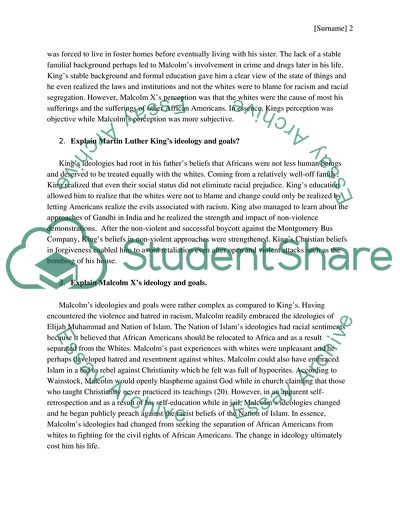Martin Luther King Jr.,Malcolm X, and the Civil Rights Movement of the Essay. Retrieved from https://studentshare.org/history/1583670-martin-luther-king-jrmalcolm-x-and-the-civil-rights-movement-of-the-1950s-and-1960s
Martin Luther King Jr.,Malcolm X, and the Civil Rights Movement of the Essay. https://studentshare.org/history/1583670-martin-luther-king-jrmalcolm-x-and-the-civil-rights-movement-of-the-1950s-and-1960s.


